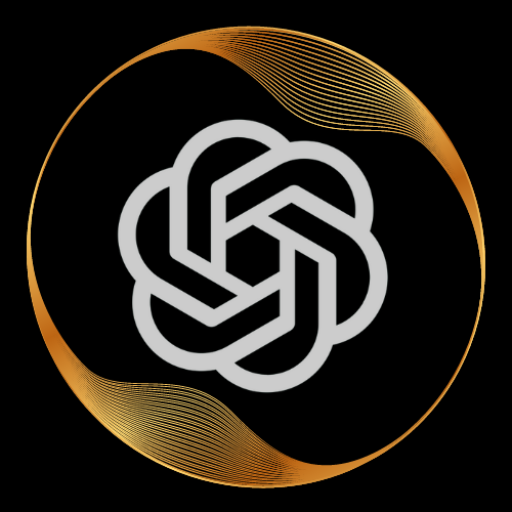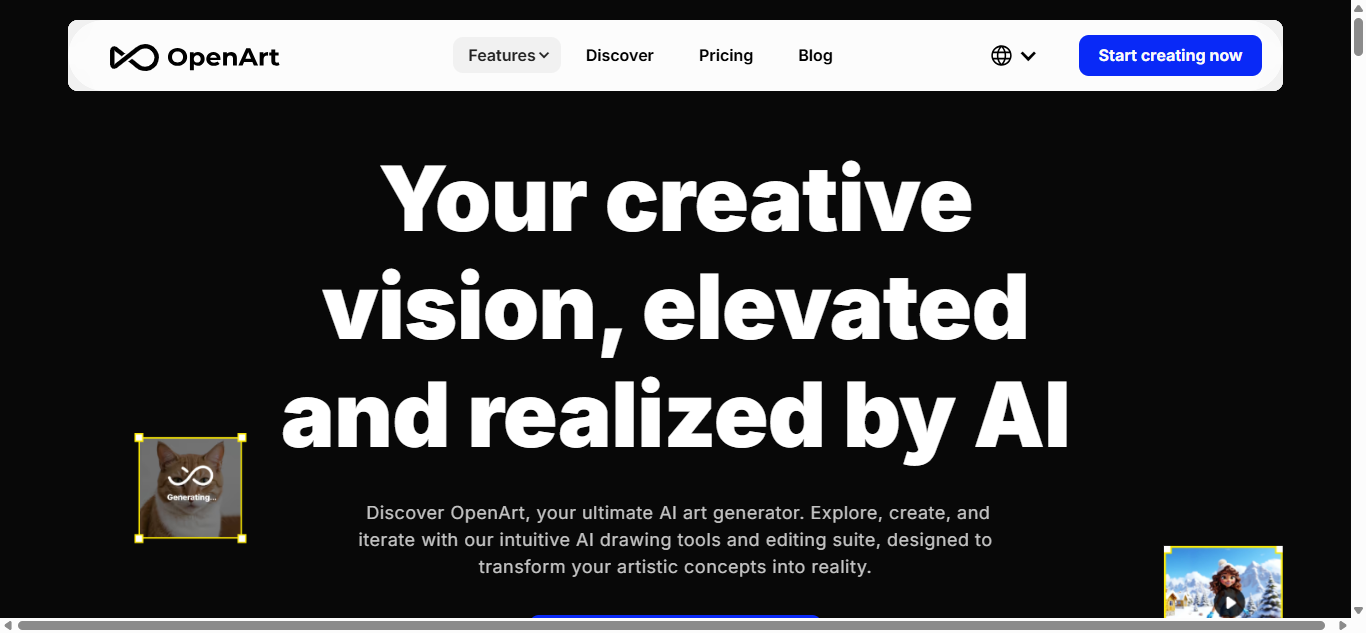The boundaries between technology and creativity are quickly disappearing. With artificial intelligence taking center stage in design, illustration, and digital media, a new generation of tools is transforming how artists, marketers, and content creators bring ideas to life. Among these tools, OpenArt AI stands out as a vibrant and versatile platform for generating and sharing high-quality AI art.
Whether you’re an experienced digital artist or someone just curious about exploring generative visuals, OpenArt AI offers an intuitive, powerful, and community-driven environment to create stunning images using AI models like Stable Diffusion. As of 2025, it’s become a go-to resource for prompt engineering, inspiration, and collaborative creation.
In this article, we’ll explore what OpenArt AI is, how it works, and why it’s making such a significant impact in the creative world.
What is OpenArt AI?
OpenArt AI is a web-based platform that allows users to generate, customize, and share AI-generated art using advanced models like Stable Diffusion and custom-trained LoRA (Low-Rank Adaptation) models. It combines text-to-image generation, prompt experimentation, and a thriving community gallery—making it a full-fledged ecosystem for AI artists.
The platform supports:
- Text prompt-based image generation
- Prompt search and remixing
- LoRA and fine-tuned model support
- A visual gallery of community artwork
- Tools for improving or editing outputs
Unlike standalone AI generators, OpenArt AI is built around creativity and collaboration, making it ideal for artists, hobbyists, designers, and AI enthusiasts.
Also read: Top AI Tools for Digital Artists in 2025
Key Features of OpenArt AI
1. Text-to-Image Generation
At the heart of OpenArt AI is its text-to-image engine, powered by open-source diffusion models. You can describe any visual scene in natural language—like “a futuristic city skyline at sunset”—and the AI will create a visual representation within seconds.
OpenArt supports various image styles, including:
- Anime and manga
- Photorealism
- Surrealism
- Fantasy landscapes
- 3D art and modeling
Users can adjust parameters like resolution, steps, aspect ratio, and style modifiers to refine results.
2. LoRA and Custom Models
What sets OpenArt apart is its support for LoRA models—fine-tuned versions of Stable Diffusion that focus on specific styles, characters, or visual aesthetics. You can:
- Browse and import community LoRAs
- Upload and train your own custom model
- Combine multiple styles for unique blends
This feature makes OpenArt ideal for creating consistent characters, stylistic artwork, or brand-aligned visuals.
Learn more: Understanding LoRA in AI Art Generation
3. Prompt Search and Remixing
OpenArt includes a powerful prompt search engine, allowing users to explore how different prompts generate specific visuals. You can:
- View sample images from other users
- Remix their prompts with your own tweaks
- Bookmark or copy successful styles
This is especially helpful for beginners learning how to craft better prompts or professionals seeking visual inspiration.
4. Visual Gallery and Community Features
The OpenArt gallery is a community-driven showcase where artists share their creations, prompts, and model settings. Features include:
- Like, comment, and follow other creators
- Explore trending and featured artworks
- Download or remix community LoRAs and prompts
This vibrant network of users fosters a sense of creative collaboration rather than competition.
5. Image Upscaling and Editing Tools
Once an image is generated, OpenArt allows users to:
- Upscale images for print or HD use
- Make minor edits or retouches
- Download in various formats
The upscaling feature uses AI to enhance image quality without sacrificing detail or composition.
Who Should Use OpenArt AI?
OpenArt AI is accessible to everyone, regardless of artistic background or technical skill. It’s especially valuable for:
Digital Artists and Illustrators
OpenArt helps artists explore styles, iterate ideas, and generate concepts quickly—from rough drafts to high-resolution outputs.
Game Developers and Designers
Developers use OpenArt for concept art, character design, and environment prototyping in gaming and animation projects.
Content Creators and Marketers
Create visuals for blogs, social media, and ads without hiring a designer. OpenArt enables the rapid generation of on-brand, eye-catching images.
Students and Educators
OpenArt is a creative tool for teaching AI, art, and digital storytelling, giving students hands-on experience with generative technology.
OpenArt AI vs Other Generative Art Platforms
| Feature | OpenArt AI | Midjourney | DALL·E 3 | NightCafe | Leonardo AI |
|---|---|---|---|---|---|
| LoRA Model Support | Yes | No | No | Partial | Yes |
| Prompt Remix and Search | Yes | No | No | No | No |
| Gallery and Community Tools | Strong | Medium | Weak | Medium | Medium |
| Custom Model Upload | Yes | No | No | No | Yes |
| Image Editing/Upscaling | Yes | No | No | Yes | Yes |
| Ideal For | Artists, Designers, Creators | Visual Designers | Quick Content | Hobbyists | Professionals |
Conclusion: OpenArt AI combines powerful generation tools with community collaboration, making it one of the most versatile and accessible platforms for AI-generated art in 2025.
Benefits of Using OpenArt AI
Intuitive for Beginners, Powerful for Experts
With smart defaults and adjustable controls, OpenArt is accessible to first-time users while offering advanced features for experienced creators.
Saves Time and Resources
OpenArt eliminates the need for expensive software or long rendering times. Generating high-quality art takes only minutes.
Inspires Creativity
Explore thousands of prompts and remix community ideas to find new inspiration and break creative blocks.
Expands Artistic Possibilities
Combine LoRAs, adjust styles, and fine-tune settings to create artwork that might be difficult or impossible to hand-draw.
How to Get Started with OpenArt AI
- Visit openart.ai
- Sign up for a free account
- Choose from “Text to Image” or “Explore Gallery”
- Enter a prompt and select model preferences
- Generate your image and download or remix it
- Upgrade to premium for advanced features like custom LoRAs, faster rendering, and higher resolution output
OpenArt AI also supports mobile access and offers tutorial resources to help you master the platform.
FAQs About OpenArt AI
What is OpenArt AI used for?
OpenArt AI is used for generating images from text prompts using artificial intelligence. It’s ideal for art creation, concept design, visual storytelling, and creative exploration.
Is OpenArt AI free?
Yes, OpenArt AI offers a free plan with basic features. Premium plans provide more image generations, model uploads, and customization options.
What models does OpenArt AI use?
OpenArt primarily uses variants of Stable Diffusion, with support for LoRA models and custom-trained weights for style-specific generation.
Can I upload my own model to OpenArt AI?
Yes. Users can upload and train their own LoRA models or download community models to use in their art generation.
Is OpenArt AI suitable for commercial use?
Yes. OpenArt AI allows commercial use of images depending on the model license used. Always check individual model terms before using images commercially.
Final Thoughts: Why OpenArt AI Is a Game-Changer for Digital Creativity
In a world where content is king and visuals matter more than ever, OpenArt AI empowers everyone to become a creator. From generating beautiful concept art to designing marketing visuals, the platform provides a frictionless experience fueled by AI and enriched by community collaboration.
Whether you’re a professional designer or just starting your creative journey, OpenArt AI gives you the tools and inspiration to push your artistic boundaries—quickly, easily, and affordably.

